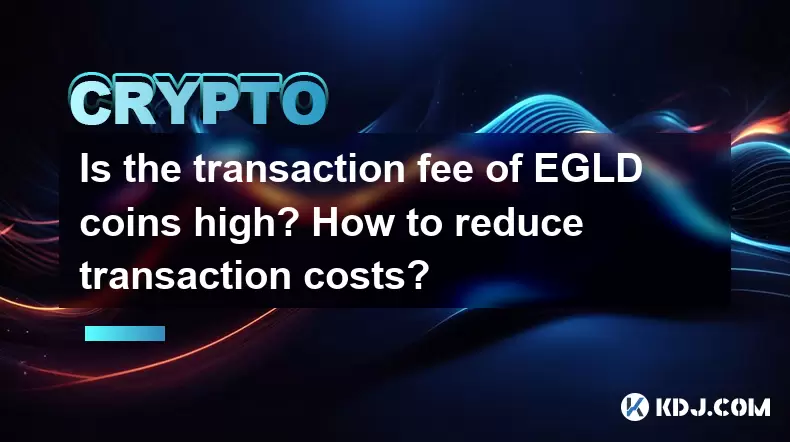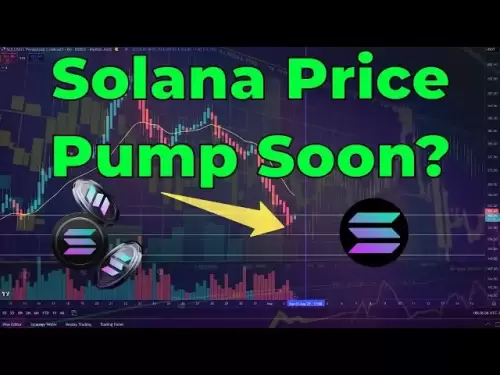-
 Bitcoin
Bitcoin $114400
1.32% -
 Ethereum
Ethereum $3499
2.20% -
 XRP
XRP $2.922
4.26% -
 Tether USDt
Tether USDt $0.0000
0.03% -
 BNB
BNB $752.6
1.53% -
 Solana
Solana $161.8
1.64% -
 USDC
USDC $0.9999
0.01% -
 TRON
TRON $0.3267
1.32% -
 Dogecoin
Dogecoin $0.1991
3.02% -
 Cardano
Cardano $0.7251
3.29% -
 Hyperliquid
Hyperliquid $38.32
3.36% -
 Stellar
Stellar $0.3972
7.58% -
 Sui
Sui $3.437
2.74% -
 Chainlink
Chainlink $16.29
3.65% -
 Bitcoin Cash
Bitcoin Cash $545.3
3.70% -
 Hedera
Hedera $0.2482
7.49% -
 Ethena USDe
Ethena USDe $1.001
0.03% -
 Avalanche
Avalanche $21.40
2.02% -
 Toncoin
Toncoin $3.579
1.56% -
 Litecoin
Litecoin $109.3
2.20% -
 UNUS SED LEO
UNUS SED LEO $8.951
-0.18% -
 Shiba Inu
Shiba Inu $0.00001220
2.75% -
 Polkadot
Polkadot $3.613
2.99% -
 Uniswap
Uniswap $9.173
3.78% -
 Monero
Monero $302.6
2.62% -
 Dai
Dai $0.0000
0.00% -
 Bitget Token
Bitget Token $4.320
1.52% -
 Pepe
Pepe $0.00001048
3.40% -
 Cronos
Cronos $0.1314
4.33% -
 Aave
Aave $259.4
3.54%
Is the transaction fee of EGLD coins high? How to reduce transaction costs?
EGLD transaction fees are low compared to Bitcoin and Ethereum, often less than a cent, but can be reduced further by timing transactions and batching them.
May 20, 2025 at 06:49 pm

Is the transaction fee of EGLD coins high? How to reduce transaction costs?
The EGLD coin, also known as Elrond, is a cryptocurrency designed to facilitate fast and cost-effective transactions within its network. One of the key aspects that users often consider when dealing with cryptocurrencies is the transaction fee. In this article, we will delve into the specifics of EGLD transaction fees, analyze whether they are considered high, and explore various strategies to reduce these costs.
Understanding EGLD Transaction Fees
EGLD transaction fees are determined by the Elrond network's consensus mechanism and the demand for transaction processing. The fees are usually measured in EGLD and are influenced by several factors, including the size of the transaction and the network congestion at the time of the transaction.
The base transaction fee for EGLD is typically very low, often fractions of a cent in USD equivalent. However, during periods of high network activity, these fees can increase due to increased competition for block space. It's important to understand that while the base fee remains constant, the total fee might fluctuate based on the network's current state.
Are EGLD Transaction Fees Considered High?
When comparing EGLD transaction fees to other major cryptocurrencies like Bitcoin or Ethereum, they are generally considered to be on the lower end of the spectrum. Bitcoin and Ethereum can have fees that range from a few dollars to tens of dollars, especially during peak times. In contrast, EGLD transactions often cost less than a cent, making them highly competitive in terms of cost.
However, the perception of whether a fee is high can vary depending on the user's expectations and the size of the transaction. For small, frequent transactions, even a fraction of a cent can add up over time. For larger transactions, the same fee might be negligible.
Factors Affecting EGLD Transaction Fees
Several factors can influence the transaction fees on the Elrond network:
- Network Congestion: During times of high activity, the demand for transaction processing increases, which can lead to higher fees.
- Transaction Size: Larger transactions, which might include more complex smart contract operations, can incur higher fees.
- Gas Price: The Elrond network uses a gas mechanism to measure the computational effort required to execute transactions. Higher gas prices can lead to higher fees.
Understanding these factors can help users anticipate and manage their transaction costs more effectively.
Strategies to Reduce EGLD Transaction Costs
There are several strategies that users can employ to minimize their EGLD transaction fees:
- Timing Transactions: By choosing to send transactions during off-peak hours, users can avoid periods of high network congestion, which can result in lower fees.
- Batching Transactions: For users who need to send multiple transactions, batching them into a single transaction can reduce the overall cost. This is particularly useful for businesses or individuals who frequently send payments.
- Using the Right Wallet: Some wallets offer more control over transaction fees than others. Using a wallet that allows users to set their own fees can help in optimizing costs.
- Optimizing Gas Usage: For transactions involving smart contracts, optimizing the code to use less gas can lead to lower fees. This might require some technical knowledge but can be highly effective.
Practical Steps to Reduce EGLD Transaction Fees
To put these strategies into practice, here are some detailed steps users can follow:
Timing Transactions:
- Monitor the Elrond network's activity using tools like blockchain explorers or network analytics platforms.
- Schedule transactions during times when the network is less busy, typically during early morning or late-night hours.
Batching Transactions:
- Identify multiple transactions that need to be sent within a short period.
- Use a wallet that supports batching, such as the Elrond Maiar wallet, to combine these transactions into a single one.
- Ensure that the total fee for the batched transaction is less than the sum of individual transaction fees.
Using the Right Wallet:
- Research and choose a wallet that offers customizable fee settings. The Elrond Maiar wallet and other compatible wallets are good options.
- Adjust the fee settings according to your needs. Lower fees might mean longer confirmation times, so find a balance that works for you.
Optimizing Gas Usage:
- If you're interacting with smart contracts, review the contract's code to identify areas where gas usage can be optimized.
- Use development tools and resources provided by the Elrond community to learn how to write more efficient smart contracts.
- Test your optimized contracts on the Elrond testnet before deploying them to the mainnet to ensure they work as expected.
Additional Tips for Managing EGLD Transaction Fees
Beyond the strategies mentioned, there are a few additional tips that can help users manage their EGLD transaction fees:
- Stay Informed: Keep up with the latest updates and changes to the Elrond network, as these can impact transaction fees.
- Use Fee Estimators: Some platforms offer fee estimators that can help you predict the cost of your transaction based on current network conditions.
- Consider Layer 2 Solutions: If available, using layer 2 solutions on the Elrond network can help reduce transaction costs by processing transactions off the main chain.
By understanding the factors that influence EGLD transaction fees and implementing these strategies, users can effectively manage and reduce their costs, making their experience with the Elrond network more economical and efficient.
Frequently Asked Questions
Q: Can I set a custom transaction fee on the Elrond network?
A: Yes, you can set a custom transaction fee on the Elrond network if you use a wallet that supports this feature, such as the Elrond Maiar wallet. This allows you to have more control over the cost of your transactions.
Q: How does the Elrond network's gas mechanism work?
A: The Elrond network uses a gas mechanism to measure the computational effort required to execute transactions and smart contracts. Each operation has a gas cost, and the total gas used for a transaction determines its fee. Users can set a gas price, which affects the priority and cost of their transaction.
Q: Are there any tools available to monitor Elrond network congestion?
A: Yes, there are several tools available to monitor Elrond network congestion. Blockchain explorers like Elrond Explorer and network analytics platforms provide real-time data on network activity, which can help users choose the best times to send transactions.
Q: Can batching transactions on the Elrond network reduce fees for smart contract interactions?
A: Yes, batching transactions can reduce fees for smart contract interactions on the Elrond network. By combining multiple operations into a single transaction, users can minimize the total gas cost and thus lower the overall fee.
Disclaimer:info@kdj.com
The information provided is not trading advice. kdj.com does not assume any responsibility for any investments made based on the information provided in this article. Cryptocurrencies are highly volatile and it is highly recommended that you invest with caution after thorough research!
If you believe that the content used on this website infringes your copyright, please contact us immediately (info@kdj.com) and we will delete it promptly.
- Cold Wallet vs. MetaMask: A Web3 Wallet Revolution?
- 2025-08-04 06:30:12
- Chainlink Price Prediction: Bearish Continuation or a Bullish Reversal?
- 2025-08-04 06:35:12
- Bitcoin Whale Alert: Navigating Liquidation Risks in a Volatile Market
- 2025-08-04 07:10:12
- BNB Price Under Pressure: Navigating the Bearish Trend and Market Sentiment
- 2025-08-04 07:15:12
- Bitcoin Price Wobbles: Options Analysis Points to Bullish Undercurrent Despite Dip
- 2025-08-04 04:30:12
- Ark Invest, Coinbase, and Bitcoin: Decoding the Crypto Investment Landscape in NYC
- 2025-08-04 04:30:12
Related knowledge

What is Chainlink (LINK)?
Jul 22,2025 at 02:14am
Understanding Chainlink (LINK): The Decentralized Oracle NetworkChainlink is a decentralized oracle network designed to bridge the gap between blockch...

What is Avalanche (AVAX)?
Jul 22,2025 at 08:35am
What is Avalanche (AVAX)?Avalanche (AVAX) is a decentralized, open-source blockchain platform designed to support high-performance decentralized appli...

What is Polkadot (DOT)?
Jul 19,2025 at 06:35pm
Understanding the Basics of Polkadot (DOT)Polkadot (DOT) is a multi-chain network protocol designed to enable different blockchains to transfer messag...

What is Litecoin (LTC)?
Jul 23,2025 at 11:35am
Overview of Litecoin (LTC)Litecoin (LTC) is a peer-to-peer cryptocurrency that was created in 2011 by Charlie Lee, a former Google engineer. It is oft...

What is Monero (XMR)?
Jul 21,2025 at 10:07am
What is Monero (XMR)?Monero (XMR) is a decentralized cryptocurrency designed to provide enhanced privacy and anonymity for its users. Unlike Bitcoin a...

How to add indicators to Ethereum chart on TradingView?
Jul 19,2025 at 07:15am
What Is an Ethereum Chart on TradingView?The Ethereum chart on TradingView is a visual representation of the price movement of Ethereum (ETH) over a s...

What is Chainlink (LINK)?
Jul 22,2025 at 02:14am
Understanding Chainlink (LINK): The Decentralized Oracle NetworkChainlink is a decentralized oracle network designed to bridge the gap between blockch...

What is Avalanche (AVAX)?
Jul 22,2025 at 08:35am
What is Avalanche (AVAX)?Avalanche (AVAX) is a decentralized, open-source blockchain platform designed to support high-performance decentralized appli...

What is Polkadot (DOT)?
Jul 19,2025 at 06:35pm
Understanding the Basics of Polkadot (DOT)Polkadot (DOT) is a multi-chain network protocol designed to enable different blockchains to transfer messag...

What is Litecoin (LTC)?
Jul 23,2025 at 11:35am
Overview of Litecoin (LTC)Litecoin (LTC) is a peer-to-peer cryptocurrency that was created in 2011 by Charlie Lee, a former Google engineer. It is oft...

What is Monero (XMR)?
Jul 21,2025 at 10:07am
What is Monero (XMR)?Monero (XMR) is a decentralized cryptocurrency designed to provide enhanced privacy and anonymity for its users. Unlike Bitcoin a...

How to add indicators to Ethereum chart on TradingView?
Jul 19,2025 at 07:15am
What Is an Ethereum Chart on TradingView?The Ethereum chart on TradingView is a visual representation of the price movement of Ethereum (ETH) over a s...
See all articles

























































































